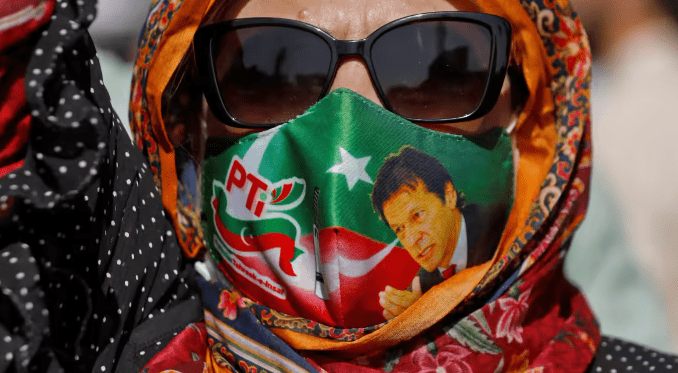Pakistan’s constitution is 50 years old and going through a midlife crisis.

At the Mushtaq Ahmad Gurmani School of Humanities and Social Sciences at Lahore University of Management Sciences, Salman Rafi Sheikh teaches politics as an assistant professor.
Given that none of Pakistan’s two prior constitutions lasted more than four years, this year marks the 50th anniversary of the country’s present constitution.
The country’s parliament celebrated “constitutionalism” last month in honor of this landmark, which was ironic given that the Shehbaz Sharif administration, the legislature, the opposition, the Supreme Court, and the military are currently engaged in a bitter constitutional dispute.
Pakistan is unable to effectively address existential challenges at a time when the country is on the verge of defaulting on its foreign debt, fighting record inflation, and trying to recover from disastrous floods. Recognizing the need for substantial changes to the 1973 constitution should be the first step in resolving this situation.
This constitution was suspended by military ruler Muhammad Zia-ul-Haq only four years after it was adopted. The government was subsequently converted to a semi-presidential one by an amendment that was passed during his administration. Over the years, further changes transferred authority between the office and the parliament.
Let’s jump to the present. An imbalance between parliament, the judiciary, and the military as a consequence of the 18th and 19th amendments to the constitution, both of which were ratified in 2010 under a civilian administration, is at the heart of Pakistan’s political issue over the staging of provincial elections.
The 18th amendment provided a legislative panel the authority to designate judges and established regional sovereignty. Parliament instead passed the 19th amendment, which made the chief justice the head of a new commission with the authority to choose judges, despite warnings from the Supreme Court to strike down the amendment.
The politics around bench placement have contributed to the present impasse.
Elections for legislative assemblies must take place within 90 days following their dissolution, according to a Supreme Court group headed by Chief Justice Umar Ata Bandial. In order to pressure Sharif into calling a general election, the opposition Pakistan Tehreek-i-Insaf (PTI), headed by the former prime minister Imran Khan, caused legislatures in two of the nation’s four provinces to dissolve in January.
In light of Pakistan’s dire economic situation, other Supreme Court justices agree with the government that the 90-day deadline should not be imposed. The present state of affairs in Pakistan is also related to the parliament’s inability to ever specify in the constitution the function of the military in the political or economic spheres in order to prevent further intrusion.
As a result, the military continues to have a billion-dollar impact on the economy and the power to create or break administrations. Khan was overthrown and replaced by Sharif last year as a result of the army’s decision to stop supporting him.
The Supreme Court’s and the military’s positions might both benefit from constitutional modifications.
For instance, Indonesia’s constitution was altered after the overthrow of dictator Suharto in 1998, reducing the military’s formerly disproportionate influence on politics and its economic basis.
The Pakistani parliament would be prudent to repeal the 19th amendment with relation to the Supreme Court. Currently, the chief justice makes decisions on the cases that his court will hear, the judges who will sit on the court, and who will hear each case. Power by appointment shouldn’t be so individualized.
However, in order to modify the constitution, two-thirds of parliament must agree, which effectively implies that no changes can be made without the backing of the PTI. Given Pakistan’s current level of division, this will undoubtedly be exceedingly difficult, but it is not absolutely impossible.
The Reimagining Pakistan movement, which supports constitutional amendments, was started by prominent political personalities including former prime minister Shahid Khaqan Abbasi.
Khan himself ought to be amenable to constitutional modifications addressing the military’s function since, ever since what he calls his “military-engineered” downfall, he has advocated for removing the army from politics.
In spite of Khan’s detention earlier this week, it so seems that there is a common basis for interparty talks. Although he was formally detained in a corruption case that his party leaders claim is politically motivated, there is little doubt that his imprisonment would further fuel the debate about the Supreme Court and the Constitution.
The main political parties of the nation have previously collaborated to implement changes. Unanimity among the 14 political parties represented in parliament in 2010 was necessary for the 18th amendment to pass.
There is no other option given the severity of the current situation except to engage in a wide political conversation centered on significant constitutional amendments. No party in Pakistan can run a true parliamentary democracy if this isn’t done.
